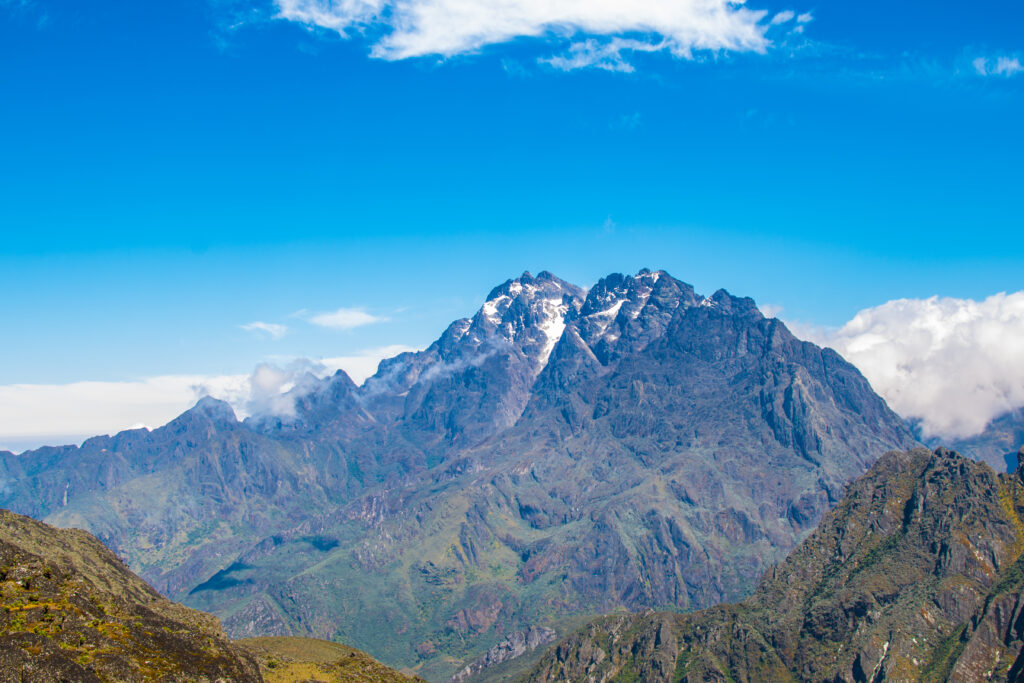Conservation Efforts in Rwenzori Mountains National Park
Rwenzori Mountains National Park, famously known as the “Mountains of the Moon,” is celebrated for its towering peaks, glacial landscapes, and remarkable biodiversity. The park is home to unique flora and fauna, including giant lobelias, groundsels, chimpanzees, and rare bird species, many of which are endemic to the region. Recognized as a UNESCO World Heritage site, the park’s ecological and cultural significance has prompted comprehensive conservation initiatives aimed at protecting its fragile ecosystems while promoting sustainable tourism and community engagement.
Protecting Biodiversity
The conservation of biodiversity is a central focus in Rwenzori Mountains National Park. The park encompasses a range of ecological zones, from montane forests to afro-alpine meadows, each supporting a distinct array of species. Programs have been implemented to monitor and protect these habitats, with particular attention given to endangered and endemic species. Research and field studies are conducted regularly to understand population dynamics, migration patterns, and ecosystem health, providing crucial data for informed management strategies.
Efforts to mitigate human-wildlife conflict have also been prioritized. Local communities, whose livelihoods often depend on agriculture and natural resources, are engaged through education and sustainable practices that minimize encroachment into sensitive wildlife habitats. These measures ensure that species such as chimpanzees and rare birds are protected while fostering coexistence with human populations.
Forest and Water Resource Management
The dense forests of the Rwenzori Mountains serve as critical watersheds, supplying rivers and streams that sustain both wildlife and local communities. Conservation efforts have focused on reforestation, soil stabilization, and erosion control to maintain these vital ecosystems. Tree-planting initiatives, combined with sustainable land-use practices, help protect water quality and preserve the ecological integrity of the park.
The glaciers and snow-capped peaks of the Rwenzoris also play a significant role in the region’s hydrology. Monitoring programs track changes in glacial coverage and the effects of climate change, ensuring that management strategies adapt to environmental shifts that could affect water supply and ecosystem stability.
Community Engagement and Sustainable Tourism
Local communities play a key role in conservation initiatives within the Rwenzori Mountains. Education programs, alternative livelihood projects, and eco-tourism initiatives have been introduced to reduce pressures on natural resources while providing economic benefits. Community-based tourism allows residents to share cultural heritage, guide visitors, and offer services such as accommodation and crafts, creating incentives to preserve both biodiversity and traditions.
Sustainable tourism practices are enforced within the park to minimize environmental impact. Guidelines regarding trail usage, waste management, and wildlife observation ensure that tourism activities do not compromise ecological integrity. By combining environmental stewardship with economic opportunity, the park’s conservation efforts promote long-term sustainability.
Research and Monitoring
Scientific research is integral to conservation in the Rwenzori Mountains. Universities, research institutions, and conservation organizations collaborate to study flora, fauna, and climate patterns. Monitoring programs track species populations, forest health, and water resources, providing insights that guide adaptive management strategies.
Public awareness campaigns also play a significant role in fostering a culture of conservation. Visitors and local residents are educated on the importance of protecting ecosystems, understanding species’ ecological roles, and minimizing human impact. These initiatives ensure that conservation extends beyond policy into daily practice.
Challenges and Future Directions
Despite concerted efforts, the Rwenzori Mountains face challenges such as climate change, illegal resource extraction, and habitat fragmentation. Glacial retreat, shifting rainfall patterns, and rising temperatures threaten alpine ecosystems, requiring ongoing monitoring and adaptive strategies. Community collaboration, sustainable tourism, and scientific research remain crucial for mitigating these impacts and safeguarding the park for future generations.
Conservation efforts in Rwenzori Mountains National Park reflect a multifaceted approach, combining biodiversity protection, forest and water resource management, community engagement, and scientific research. These initiatives are essential for maintaining the park’s ecological and cultural integrity while promoting sustainable tourism. For travelers seeking to experience the Rwenzoris responsibly and with expert guidance, booking with Cyro Tours & Travel ensures professional support, seamless logistics, and knowledgeable leadership. By relying on experienced operators, visitors can explore Uganda’s “Mountains of the Moon” while contributing to ongoing conservation and sustainable development efforts.



